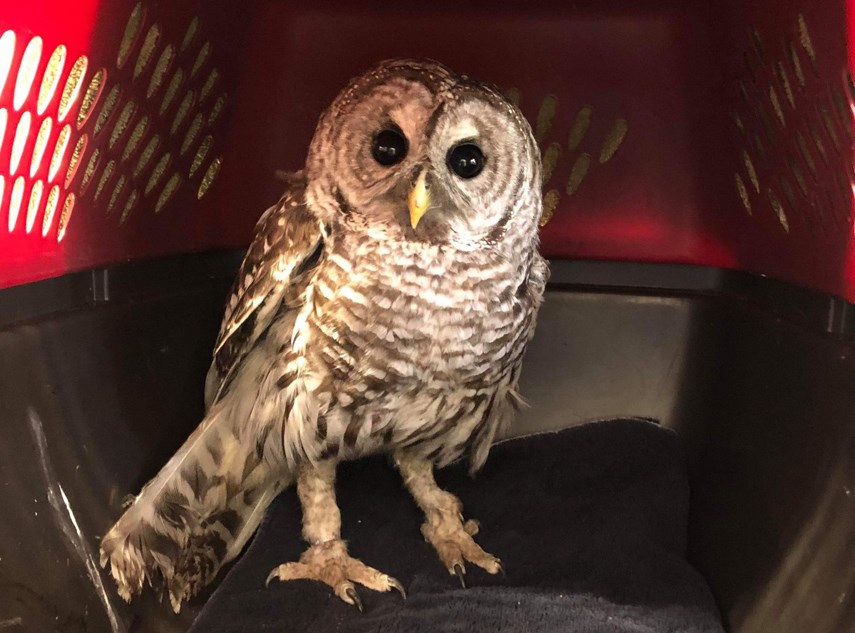Lucky, the North Vancouver barred owl who survived being poisoned twice in three weeks, has been released back on the North Shore, hopefully this time for good.
On April 30, Yasmin Abidi and a group of strangers found the bird bleeding and being attacked by crows along the Mackay Creek greenbelt across from Capilano Mall. They arranged for him to be taken to the Orphaned Wildlife Rescue Society in Delta where he was nursed back to health.
Almost certainly, the culprit was rodenticide – anti-coagulant drugs designed to make rats and mice bleed out, but they also poison any predators or scavengers that eat the dead rodents. The society’s records showed Lucky had been brought in for poisoning just three weeks earlier.
Normally owls are released into the same area where they were found, but with Lucky’s history the volunteers who saved him decided to go deep into Capilano River Regional Park and let him fly free again.
“It was just perfect. He was raring to go,” Abidi said. “I hope he lives a long poisoned-food-free life. I hope he finds a mate – he finds a friend… In the wild, they maybe live until their teens. He's only about two, I think, so hopefully he is going to live the full extent of his life, or what is expected, in the wild.”
Lucky the Barred owl was released May 29, 2020 in a most beautiful place. We hope he never eats another poisoned meal again. Live long Lucky. Live long.
— Yasmin Abidi (@britandcan) May 31, 2020
Thanks for the video Heather:) pic.twitter.com/WERAFTezox
Abidi and a group of friends she is calling “Lucky’s Army” had already begun circulating an online petition calling on the three North Shore municipalities to ban rodenticides. On its way to picking up almost 5,000 signatures, Abidi learned that restriction would fall under provincial jurisdiction, so she revised the wording to call on each council to stop using rodenticides on municipal property.
District of North Vancouver Coun. Megan Curren has already prepared a report calling on the district to do just that, as well as lobby the province to ban the poison and communicate with businesses and residents asking them to stop using it in the meantime.
Lucky’s story has spread far and wide, Abidi said, but she has plans now to work on a documentary about his story in hopes of spreading more awareness about rodenticides.
“It's about educating people,” she said.



